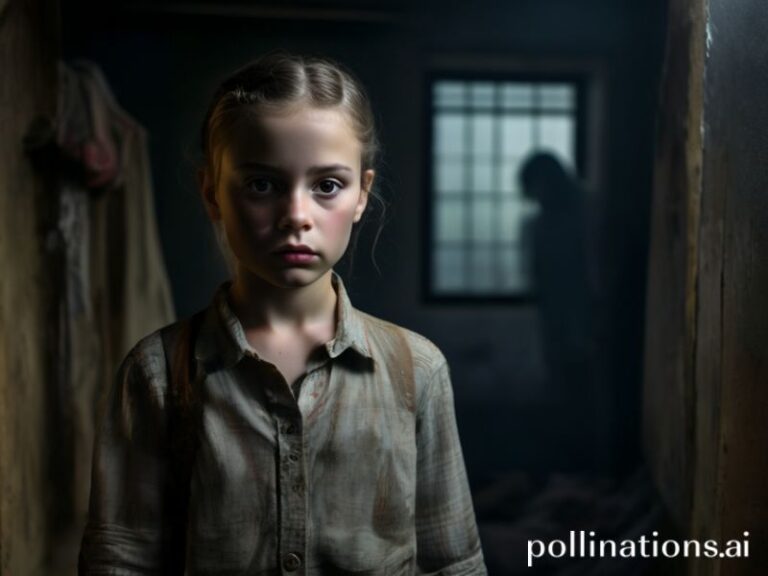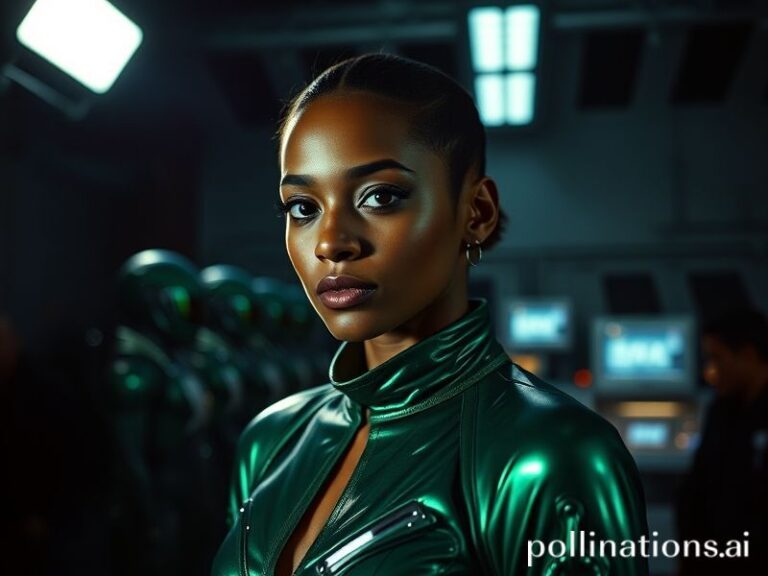Milly Alcock: The 23-Year-Old Aussie Who Accidentally Became Earth’s Last Shared Cultural Reference
The Curious Case of Milly Alcock, or How a 23-Year-Old Aussie Became the Last Shared Cultural Reference Standing
SYDNEY—Somewhere between the implosion of Twitter and the planet’s 400th consecutive “hottest year on record,” humanity apparently decided its final communal campfire story would be delivered by a 5’5″ actress from New South Wales who once worked the drive-thru at a Sydney KFC. Milly Alcock—dragon-rider, Emmy nominee, reluctant Gen-Z Mona Lisa—has become the one plotline the entire globe still agrees on, a feat the United Nations hasn’t managed since the metric system.
From São Paulo to Seoul, viewers who can’t concur on masks, tariffs, or whether the Atlantic is still technically an ocean, have nevertheless binge-watched Alcock’s Rhaenyra Targaryen hiss her way through medieval succession politics with the moral clarity of a tax audit. The numbers are almost insultingly cheerful: House of the Dragon drew more simultaneous streams than COP28 got viewers—though, to be fair, one featured fire-breathing monsters and the other merely discussed them. In the grand tradition of global soft-power exports, Australia has now swapped shrimp-on-the-barbie for dragon-on-the-HBO, and the world appears grateful.
Of course, the international embrace comes with the usual caveats. European critics applaud Alcock’s “pre-Raphaelite rage,” while American entertainment journalists ask whether she’s “the next Zendaya,” apparently operating under the constitutional requirement that every young woman be benchmarked against exactly one predecessor. Meanwhile, Japanese fandom has already produced 47 Rhaenyra-themed convenience-store snacks, including a black-sesame onigiri that bleeds strawberry jam when bitten—an edible metaphor for dynastic politics that would make Machiavelli choke on his mochi.
What’s fascinating—aside from the usual spectacle of capitalism slapping a blonde wig on anything that moves—is how Alcock’s rise tracks the shrinking of our collective attention span. She filmed her breakout role during Melbourne’s 262-day lockdown, which means the performance that now unites 193 countries was originally witnessed by precisely three boom operators and a socially distanced gaffer. It’s the first time in human history that a global star was minted in a hermetically sealed biosphere, like a pop-culture sourdough starter nobody asked for.
Naturally, the apparatus around her is already metastasizing. British tabloids have begun live-tracking her coffee choices (flat white, if you’re placing bets). Luxury conglomerates—those benevolent patrons of art—have begun circling with perfume contracts thick enough to stun a direwolf. And somewhere in the metaverse, a start-up is minting NFTs of her facial micro-expressions, because nothing says “future” quite like monetizing a raised eyebrow in 8K resolution.
Yet the actress herself remains endearingly allergic to the script. At Cannes, asked how it felt to represent “a new feminist icon,” Alcock deadpanned, “I was just trying not to fall off the dragon.” The line ricocheted across continents faster than any G7 communiqué, proving once again that accidental honesty travels better than diplomatic jargon. In an era when every public utterance is focus-grouped into oatmeal, a 23-year-old who still swears like a Sydney bartender feels almost revolutionary—though revolution, like everything else, is now available with branded merch.
The broader significance? In a splintering world, we’ve landed on a rare consensus object: a performer whose scowl can be memed in 40 languages without losing its bite. If civilization collapses tomorrow, the surviving cockroaches will still recognize that trademark side-eye from the ruins of a Seoul subway ad. Milly Alcock hasn’t saved the world—let’s not be hysterical—but she has given it a common campfire story just as the woods start looking awfully dark. And if that story ends with dragons, blood, and the uneasy suspicion that power rots everything it touches, well, at least the metaphor is honest.
We’ll take our shared myths where we can get them. Preferably with a side of black-sesame bleeding onigiri.







